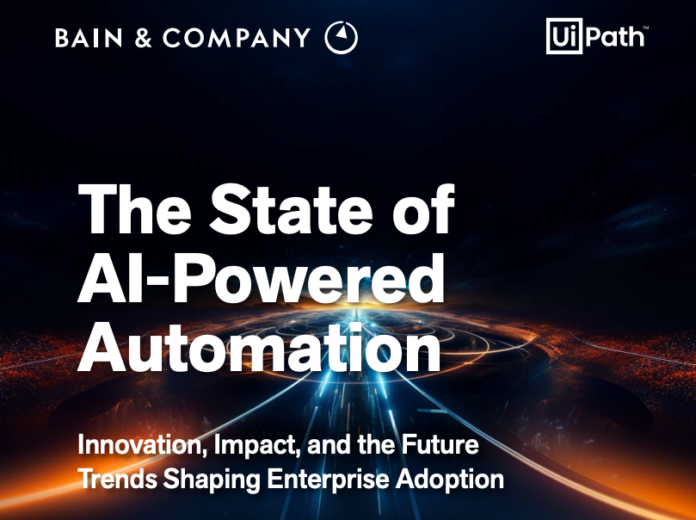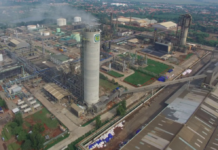Fast-paced deployment of AI is accelerating the scope and scale of business change while automation has long been a force for improvement and efficiency within organisations, new analysis from Bain & Company and UiPath shows.
The study’s findings draw from a Bain-led survey of 200 companies, the majority with revenues of $5 billion or more, alongside an extensive series of qualitative interviews with senior executives.
With more than half (53%) of executives surveyed reporting their businesses have already deployed some form of generative AI, the impact of the technology is underlined by 45% of respondents forecasting that integration of automation and AI tech will catalyse a major transformation in their industry within the next few years.
Nearly half (48%) of those surveyed by Bain also said they experienced a higher impact when using AI-intensive solutions such as machine learning and cognitive automation.
A majority of respondents say they are already investing in AI-powered automation, with 70% asserting that AI-driven automation is either “very important” or “critical” in fulfilling their organisation’s strategic objectives.
Almost three-quarters (74%) anticipate a positive return on investment from their automation endeavors.
Ted Shelton, Bain & Company expert partner in the firm’s Enterprise Technology and Performance Improvement practices, said businesses must go beyond deploying this technology and fundamentally rethink and redesign business models to integrate AI and automation seamlessly.
“The truly future-proofed organisations will be agile, with a fluid culture and design, constantly evolving, and reconfiguring in tandem with technological advancements in AI,” said Shelton.
The survey found that executives are mixed on their views of generative AI.
While nearly half of firms have adopted some form of generative and 44% of respondents stated that generative AI will be transformative, 18% asserted that the technology is overhyped while another 11% believe generative AI is still undervalued.
Respondents see a future where AI enables new product or service offerings (58%), creates avenues for data monetisation (52%), allows for heightened personalisation in offerings (47%), and even paves the way to tap into previously uncharted markets or customer segments (26%).
“The majority of organisations report AI and automation are critical to their business objectives, and most will use AI and automation as a catalyst for generating new revenues and future product offerings,” said Rob Enslin, co-CEO at UiPath.
The survey finds that that most organisations have deployed a suite of automation technologies, including AI and machine learning (ML) (80%), robotic process automation (RPA) (64%), and predictive analytics (69%). The primary motivation behind adoption is increasing efficiency and productivity (85%).
While the majority (69%) report experiencing the efficiency and productivity gains they sought, they also report automation-related benefits including improved accuracy and reduced errors (56%) and increased competitiveness (45%).
“It seems clear that AI-powered automation, including generative AI, will drive a larger wedge between those organisations that have a plan, and those that don’t – amplifying advantage and placing early adopters into stronger positions during the coming market reconfiguration,” said Shelton.
















